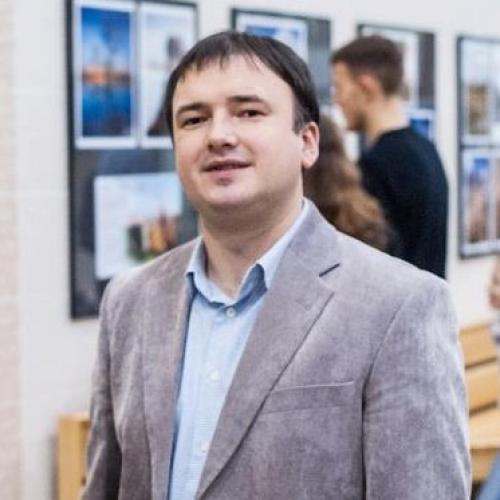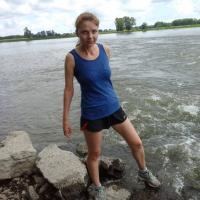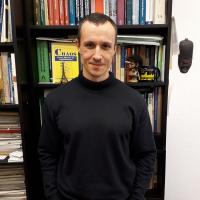Team Members
 |
Paweł Chodkiewicz
Ph.D. Student
|
 |
|
Pawel Chodkiewicz has a bachelor’s degree in physics and computer techniques and a master’s degree in informatics obtained from the University of Bialystok, Poland. Presently he is a Ph.D. student at the Warsaw University of Technology. His scientific interests are in smart materials and structures. His current research efforts are mostly focused on the modelling of Vacuum Packed Particles structures, but he also contributes to the programmable matter project at IPPT PAN. His main activities in the PM project are the development of distributed algorithms for modular robots and carrying out necessary software adjustments to perform computer simulations (extensions of the Yade DEM open-source discrete element method system, and, recently, also Visible Sim).
|
 |
Anna Górzyńska-Lengiewicz
|
|
|
Anna Górzyńska-Lengiewicz graduated in mathematics from the University of Warsaw, Poland. She also followed a PhD track at the Institute of Fundamental Technological Research of the Polish Academy of Sciences (2006-2010). Her activities within the programmable matter project are related to modular-robotic scalable actuator structures. In particular, her investigations are focused on special effective reconfiguration scenarios from chaotic arrangements of modules into fully ordered actuator structures. The intrinsic difficulty of the task lies in the fact that modules inside a structure are compressed by gravity and may have difficulty moving using their limited-strength actuators.
|
Past Members
 |
Michał Kursa
Assistant Professor
|
 |
|
 |
Anna Macios
|
 |
|
Publications
[1] Lengiewicz, J., Holobut, P., Efficient Collective Shape Shifting and Locomotion of Massively-Modular Robotic Structures (2018, accepted) Autonomous Robots, pp. 1-37.
[2] Holobut, P., Lengiewicz, J., Distributed computation of forces in modular-robotic ensembles as part of reconfiguration planning, (2017) Proceedings - IEEE International Conference on Robotics and Automation, pp. 2103-2109.
[3] Lengiewicz, J., Kursa, M., Hołobut, P., Modular-robotic structures for scalable collective actuation (2017) Robotica, 35 (4), pp. 787-808.
[4] Hołobut, P., Chodkiewicz, P., Macios, A., Lengiewicz, J., Internal localization algorithm based on relative positions for cubic-lattice modular-robotic ensembles (2016) IEEE International Conference on Intelligent Robots and Systems, pp. 3056-3062.
[5] Holobut, P., Kursa, M., Lengiewicz, J., Efficient modular-robotic structures to increase the force-to-weight ratio of scalable collective actuators (2015) IEEE International Conference on Intelligent Robots and Systems, pp. 3302-3307.
[6] Hołobut, P., Kursa, M., Lengiewicz, J., A class of microstructures for scalable collective actuation of Programmable Matter (2014) IEEE International Conference on Intelligent Robots and Systems, pp. 3919-3925.






